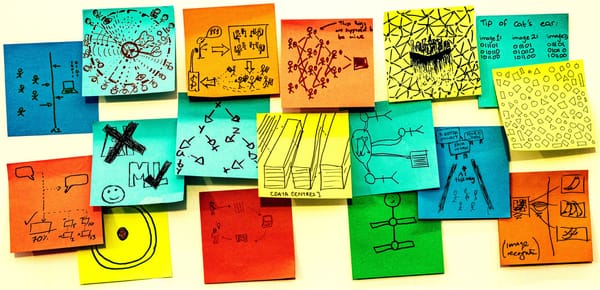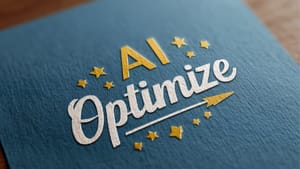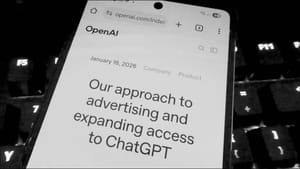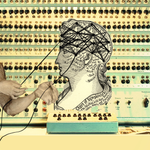Over the past year, I’ve been rethinking what productivity really means – and rebalancing life and work in the process.
It’s a thread that runs through much of what I’ve written recently, from exploring intentional aspirations to documenting the joy and symbolism of building a garden studio that reflects a new chapter in how I work and live.
So when I read the latest research from the Harvard Business Review on how people are using generative AI in 2025, it didn’t just resonate – it felt deeply familiar.
The real headline? People are turning to AI for emotional support, organisation, and purpose.
According to HBR’s updated Top 100 Gen AI Use Cases for 2025, the three most popular use cases aren’t writing code, generating content, or data analysis. They are:
- Therapy and companionship
- Organising my life
- Finding purpose
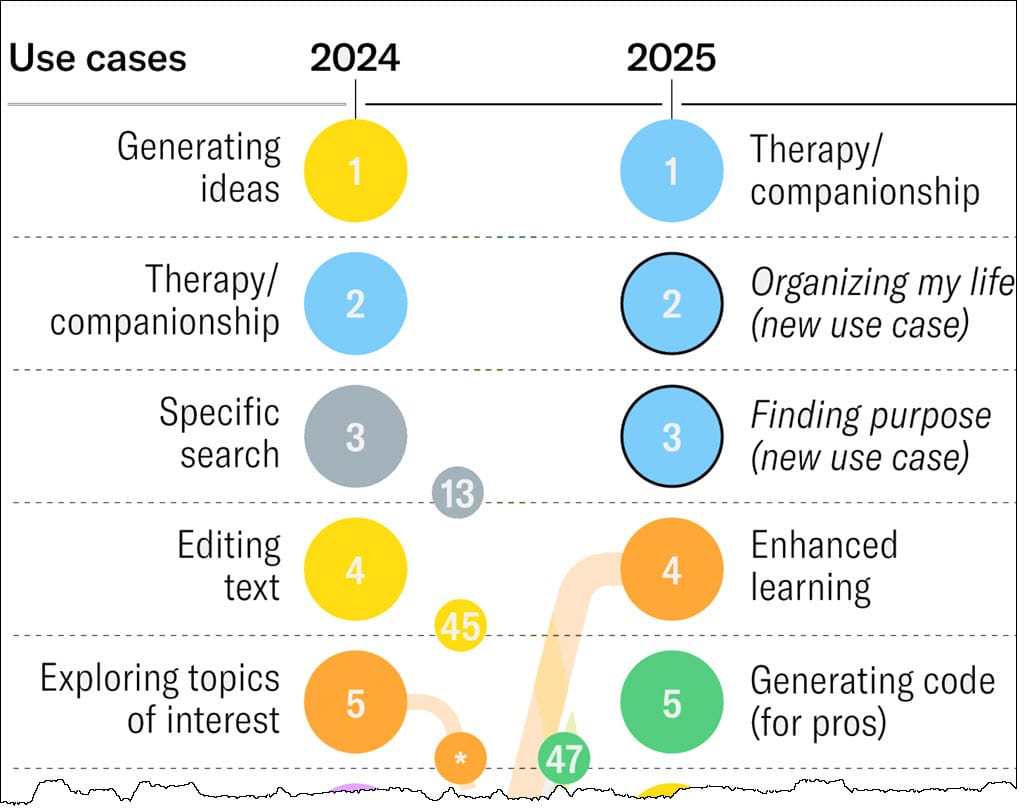
It marks a clear shift from technical tools to human ones – from machines doing things for us to helping us do things ourselves with intention. That speaks to the heart of what I’ve been exploring in my own life.
Organising Life: The New Productivity
I’ve long been a champion of technology as an enabler. But in recent months, I’ve started using Gen AI in more grounded ways. It helps me plan my day, clarify my goals, and even make space for unexpected moments of reflection – something I talked about in my December post on intentional aspirations.
The HBR article notes that people are using AI to structure their lives with simple prompts like “help me clean my house before guests arrive” or “guide me through setting a new habit.” These aren’t revolutionary tasks – but they’re real. And when they’re off your mind, something remarkable happens: mental clarity returns.
Finding Purpose, Slowly and Steadily
The third-highest new entry on the list – “Finding purpose” – is particularly striking. It includes things like defining values, getting unstuck, reframing challenges, and exploring next steps. In my own experience, AI can be a valuable thinking partner, offering not just ideas but new ways to think about ideas.
In “A New Beginning”, my first post in January on my new Ghost blog, I talked about choosing to write for people, not algorithms. That decision itself was purpose-driven: to connect more meaningfully with others, to rediscover the joy in writing, and to honour the passage of time without being beholden to it.
Therapy and AI: Still Controversial, Still Growing
The rise of AI in mental health – now the number one use case – brings ethical and emotional complexity. As one Reddit user shared in the HBR article, “Large language models are accessible to everyone... and they can help. Unfortunately, data safety is not a concern when your health is deteriorating.”
While I don’t rely on AI for therapy, I do see the appeal: it’s available 24/7, doesn’t judge, and costs nothing. I can imagine it being helpful for working through thoughts aloud or simply feeling heard when no one else is around.
A Garden Studio and a Mental Shift
Creating my garden studio wasn’t just about having a dedicated workspace – it was a physical commitment to this shift toward calm, intentional focus. Gen AI has become part of that rhythm. It’s a quiet assistant in the background: suggesting, sorting, guiding, but never demanding.

I’ve also found AI valuable in curating ideas for blog posts, podcast topics, summarising articles (like this HBR one), and occasionally challenging my assumptions in helpful ways.
Real Tools for Real Life
If last year was about exploring AI’s capabilities, this year feels like the moment we start making it work for us – not only at work but also in the quieter, more personal corners of our lives.
This new research from HBR shows just how widespread that shift is. We’re not just using AI to automate tasks – we’re using it to help us think, feel, and grow. And that, to me, is a hopeful direction.
As I continue exploring how AI fits into this new rhythm of work and life, what strikes me most is how it’s becoming less about output and more about insight. Less machine, more mirror.
Has AI started playing a more human role in your life – helping you stay organised, reflective, or even find purpose? Share your thoughts in the comments.
☑️ Related Reading:


